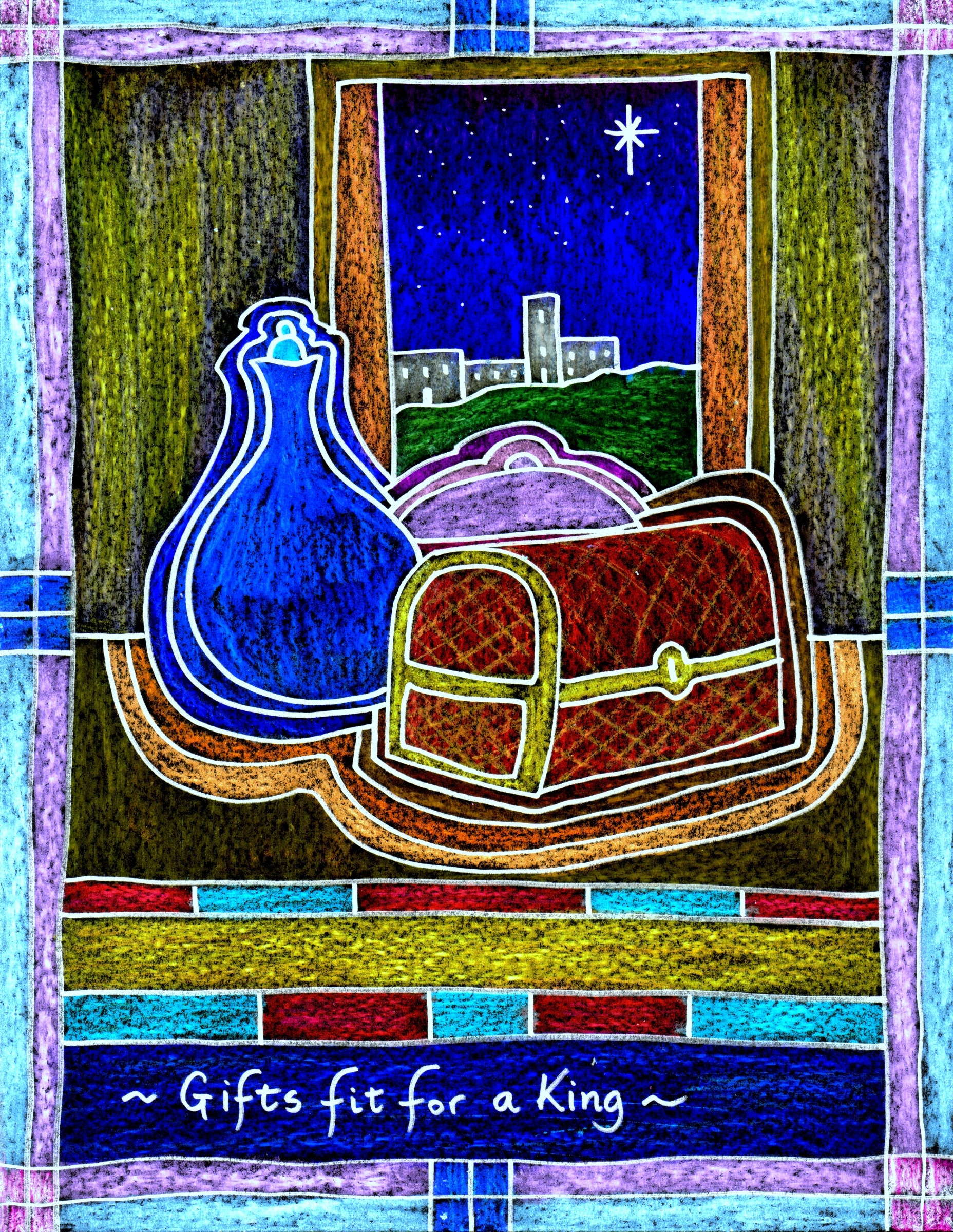Gifts for the New Year

GIFTS FOR THE NEW YEAR
Rev. Dr. Joyce Antila Phipps
Old First Church, Middletown, NJ
January 3, 2021
Texts: Isaiah 60:1–22; Matthew 2:1–12
The Visit of the Magi has long been a popular theme for artists. Almost every Italian Renaissance artist painted a version of the visit. It was a favorite theme in Raphael’s art. One of the most beautiful is the one I remember seeing in the National Gallery of Art, where I spent many Saturdays looking at depictions of eternal mystery. Art is indeed a great gift to us because it draws us into someone else’s perspective on an event, a person, a reality. Visual art makes us stop and look, get inside ourselves as well as the artwork we are ingesting. It is a time of quiet contemplation.
In spite of the way the virus has taken over our lives, we don’t have much time for quiet contemplation in our world of the get-there-as quickly-as-you-can living when we stuff as much into a moment as possible. Perhaps this is one of the reasons I love the early morning so much, looking out from my study window, watching the shades of dark turn into shades of blue and rose against the branches of the trees. It’s a time of quiet contemplation. Of course, there are those of us for whom this is the time of just getting to bed, their time of quiet contemplation being late in the night.
The night is different in the cities and suburbs we live in than in the country where there is no artificial light. The first thing you notice is the stars; there are literally millions of them. Here in our suburban well-lighted night sky, we can only see Venus, Mars, or Saturn as they shine above the lights. Imagine a time far away, about two thousand years ago; imagine a place where people traveled by the stars at night, where they had to be intensely aware of their surroundings or they would get lost––no cell phones to call for directions; imagine a place so open that it seems to stretch forever, where thirty miles seems like a lifetime away. Imagine such places and times and you will realize the gifts our ancestors gave us in their understanding of the world.
At Christmas, we shared gifts, usually items, some of deep meaning, others given or received almost as duty. We’ve lost our old sense of what Christmastide was, the period of twelve days following Christmas leading up to the Feast of the Epiphany. Our Reformer ancestors tried to suppress many of those feasts, calling them popish, urging us to be more “serious” about life, to contemplate our eternal future. But their dour approach to the world did not, could not, last long because the joy of Christmastide and the innate sense we have as human beings to celebrate good things, to laugh and share with each other could not be suppressed.
So, how do we look at this New Year that comes only a week after Christmas? What sort of gift can we give ourselves that will be gifts for others as well? We can give ourselves the gift of inner peace. It’s not a magic solution to the woes we see around us, to be sure, but it is a way to approach those woes and problems that will help us and the people we love and care for get through them.
We can give ourselves the gift of time to sit and draw into ourselves the reality of God’s presence. You know, each day now gets three minutes longer. Three minutes sounds like such a short time, but you will learn how long three minutes can be if you are centering yourself on God and God’s presence. Being perfectly still for three minutes ––most of us have trouble being perfectly still for thirty seconds.
We can give ourselves the gift of hope. Only above the gates of Dante’s Inferno is it written, “Abandon all hope, ye who enter here.” We do not stand before those gates and while there is life, there is hope. I have a cartoon that exemplifies the determination not to give up hope. A crane has a frog in its beak, but the frog has put its hands around the crane’s neck, squeezing it so it cannot be swallowed. While we have life and breath, we have hope. And we can share our hope for recovery and meaningful change in our society with others through our actions, our behavior, and our lives.
We can give ourselves the gift of love. By love, I don’t mean some soppy and sentimental image drawn by Hallmark cards. Love is tough. As Scripture tells us, love is as strong as death and has the power even to overcome death and suffering. Loving, the act of love, enables us to enter into someone else’s space, to be with that person when he or she is suffering, and to help that person overcome the despair that suffering brings.
The writer of Matthew’s Gospel understood all this very well. He had the Magi present gifts that pointed to the future of the Child, a Messiah at birth. The symbolism of the gifts, reflected in the Christmas carol we sang, stated it: Gold to crown the king, Frankincense to draw a deity nigh, and Myrrh the bitter perfume breathes a night of gathering gloom. The Gospel presents an image of the one who came to bring us hope, love, and inner peace. It is up to us to accept those gifts and to share them with others in this New Year.
Let us pray: Eternal God, who has shown us how to have hope, how to love others, and how to find your presence in our lives, be with us in grace as we bring your love and hope and peace to others. Amen.